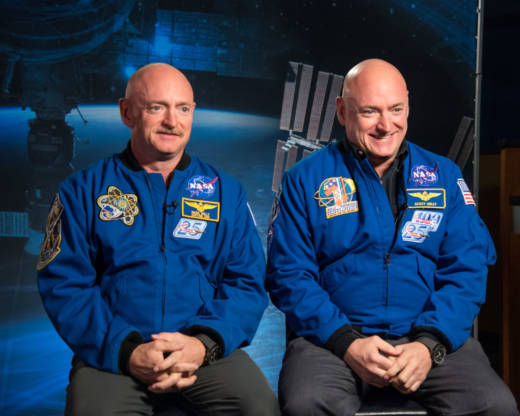Following several misleading news reports that claimed 7 percent of an identical twin’s DNA changed after he spent one year in space, rendering them no longer identical, NASA reissued the press release clarifying the preliminary findings of their “Twins Study.”
“Mark and Scott Kelly are still identical twins; Scott’s DNA did not fundamentally change,” the updated press release says.
Scott and his twin brother, Mark Kelly, were the subjects of the study, which looked at how spaceflight affects the human body. Scott lived on the International Space Station from March 2015 to March 2016. Researchers documented physiological and psychological changes in Scott and compared the data to his twin brother Mark, who remained on Earth and served as a control subject.
The confusion seems to stem from NASA’s original, January press release, which was vaguely worded. Publications like Newsweek began reporting that some of Scott’s DNA had changed, based on this excerpt from the original press release:
Researchers now know that 93% of Scott’s genes returned to normal after landing. However, the remaining 7% point to possible longer term changes in genes related to his immune system, DNA repair, bone formation networks, hypoxia, and hypercapnia.
In reality if 7 percent of Scott’s DNA had changed, he likely would no longer be human. As National Geographic’s Nadia Drake noted, “humans and chimps have genetic sequences that differ by less than 2 percent, and individual humans—even completely unrelated strangers—differ by about 0.1 percent.”

